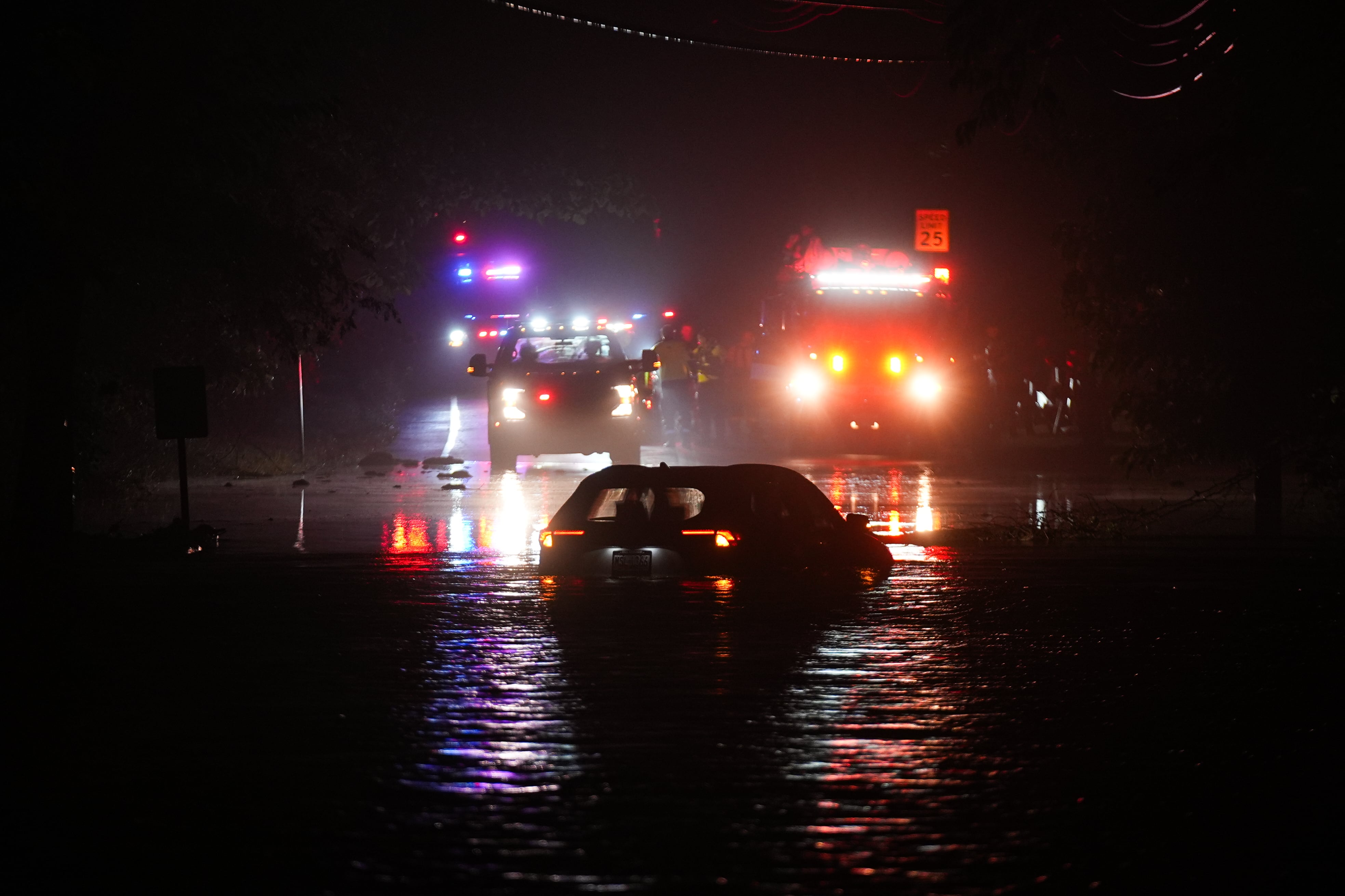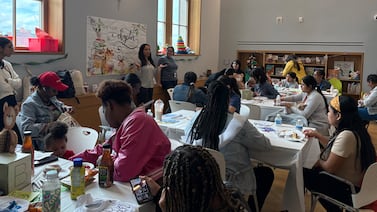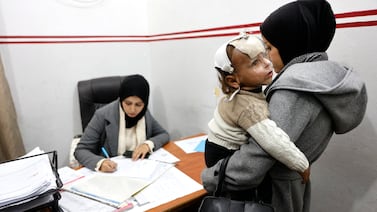This article originally appeared at Your Local Epidemiologist New York. Sign up for the YLE NY newsletter here. Public health, explained: Sign up to receive Healthbeat’s free New York City newsletter here.
There’s a ton going on in the world of New York public health. This week we’ll cover measles, Covid, tick bites, and West Nile virus. Let’s dig in.
Flooding in New York
Extreme rainfall early this week paired with old sewer systems caused flooding in parts of New York and New Jersey. Central Park recorded its second-wettest hour in history, with over 2 inches of rainfall in an hour Monday night. Inundated roads and subway lines disrupted transportation. Sadly, two people in New Jersey died after being swept away in a river. The governor issued a state of emergency.

While the waters have since receded, this event once again revealed our community vulnerability to floods, and the need to be prepared. Just last month, the New York City Department of Health identified flooding as a top public health hazard for New Yorkers.
What can we do to prepare for floods in New York?
- FloodHelpNY is an online resource hub for New York residents, created through the Governor’s Office of Storm Recovery, the Federal Emergency Management Agency and other partners. Enter your address to assess your specific flood risk.
- Sign up for NYC Emergency Alerts or NOAA Weather Radio for notifications.
- Be prepared to shelter safely during floods or extreme rain events. Move to higher ground — if you live in a basement apartment, be prepared to move to a higher floor during periods of heavy rain. Never drive or walk through floodwaters - just 6 inches can sweep a person away.
YLE national offered suggestions in a piece this week tied to the floods in Texas.
Measles in Ocean County, New Jersey
New Jersey is reporting a measles case in Ocean County. The health department is investigating the case, but so far there isn’t a ton of information. Contact tracing is underway, and people who may have been exposed are being notified. Potentially exposed individuals, if infected, could develop symptoms as late as July 22.
The recommendation to stay up to date with MMR vaccinations remains the same. New Jersey and New York state departments of health are also urging anyone not fully vaccinated to get the measles vaccine before traveling internationally or to any U.S. region with a measles outbreak.
They recommend:
- Being fully vaccinated with the MMR vaccine at least two weeks before departure.
- If the trip is less than two weeks away, and the traveler is not immunized, getting one dose of MMR is advised.
As always, consult your medical provider to discuss what’s right for you and your family.
In case you missed it, Katelyn Jetelina and Kristin Panthagani’s YLE National post last week contextualized why public health is raising alarms about record high measles cases in the United States.
Covid still low in New York
We still aren’t seeing much COVID activity in New York—welcome news for the summer! As always, I’ll share updates when I have them.
Tick bites are still very high in the Northeast
The Fordham Tick Index, which measures the risk of being bitten by a tick in the tri-state area (Southern New York, Connecticut, and Northern New Jersey) is 9 out of 10 — very high risk. The index is based on current and historical data from the Fordham’s Biological Field Station in Westchester County, New York.
We see this playing out in emergency department visits for tick bites in the Northeast, which have been higher this year than last.
In New York, we are most concerned about Lyme disease, which is transmitted by black-legged ticks (aka deer ticks). New York reports some of the highest numbers of Lyme disease in the country, with more than 9,000 cases annually. Lyme is found in every region of New York, including urban centers like New York City.
Protecting yourself and family means avoiding ticks:
- Use repellent that contains 20% or more DEET, picaridin, or IR3535 on exposed skin.
- Treat clothing and gear with products containing 0.5% permethrin.
- Walk in the center of trails and avoid brushing against tall plants.
- Do tick checks after spending time outdoors. For kids, especially check under arms, in and around ears, in the belly button, and in their hair.
- Toss your clothes in a hot dryer for 10 minutes to kill any hidden hitchhikers.
- Treat dogs for ticks. Dogs are very susceptible to tick bites and may also bring ticks into your home.
If you find a tick attached to your skin, remove it promptly with tweezers and monitor for symptoms. Early treatment is key to preventing severe illness.
Mosquitoes test positive for West Nile virus in NYC
We are in the thick of mosquito season in New York, and we can expect the pests to hang around until about November when temperatures start to drop.
Most mosquitoes do not carry pathogens that can hurt us. Among those that do, the most common is West Nile virus, and even that is relatively rare. In 2024, 100 human cases were reported across New York state, including in New York City. While most people who get West Nile virus won’t show symptoms, the virus can be more dangerous for those who are over 60 years old or have immunocompromising conditions.
In New York City, the virus has been detected in mosquitoes in the Bronx, Queens, and Staten Island so far this season. There have been no human cases. We are still waiting for New York state to post their data and will be back with updates when that happens.
The best thing you can do is avoid mosquito bites:
- Wear EPA-approved mosquito repellent outside, especially during peak mosquito activity time: dawn and dusk. If you are using sunscreen, apply sunscreen first and insect repellent second.
- Avoid being outside when mosquitoes are most active (the morning and evening) — but this can be really hard.
- If it’s not too hot, long sleeves and long pants can protect against bites.
- Dump standing water (think flower/plant saucers, buckets, fountains, toys that have been sitting outside, etc.) to eliminate mosquito habitats.
There aren’t any spraying events currently scheduled, but I’ll be back with an update when that happens.
Bottom Line
You’re all caught up with New York health. See you next week!
Love,
Your NY Epi
Dr. Marisa Donnelly, PhD, is an epidemiologist, science communicator, and public health advocate. She specializes in infectious diseases, outbreak response, and emerging health threats. She has led multiple outbreak investigations at the California Department of Public Health and served as an Epidemic Intelligence Service Officer at the Centers for Disease Control and Prevention. Donnelly is also an epidemiologist at Biobot Analytics, where she works at the forefront of wastewater-based disease surveillance.







